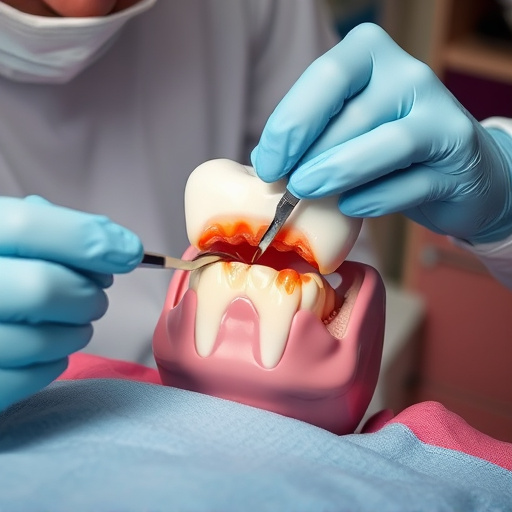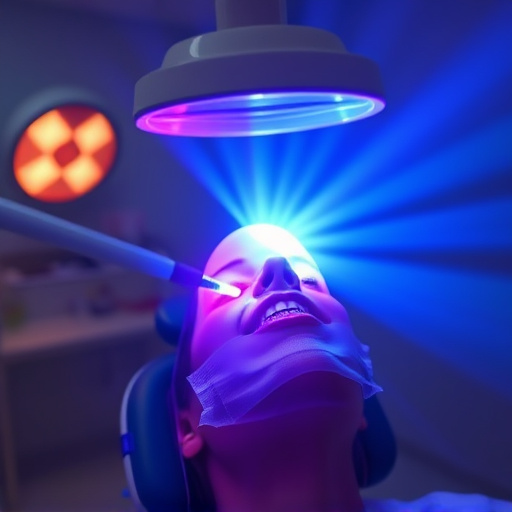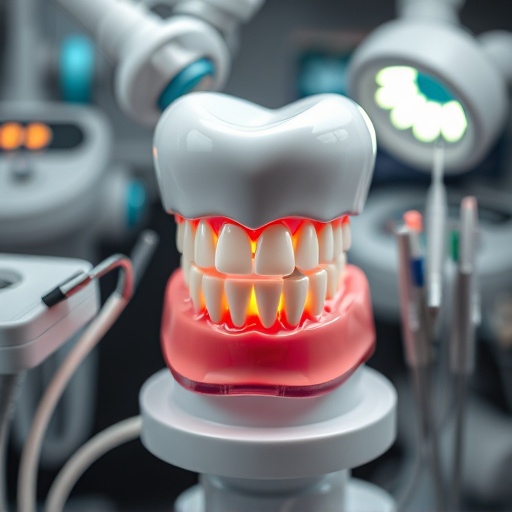Wisdom teeth (emerging late teens-early 20s) may cause pain, infection, and gum disease if partially erupted or impacted. Regular dental check-ups, x-rays, and proactive care are vital for early detection. Removal is recommended to prevent severe issues like jaw problems, infections, and costly repairs, ensuring optimal oral health.
Considering wisdom teeth removal? It’s a crucial step to prevent potential jaw and gum problems. This article delves into the impact of wisdom teeth, exploring common signs of associated jaw and gum issues. We also highlight the benefits of proactive removal, offering insights on why timing matters. Understanding these factors empowers you to make informed decisions regarding your oral health. Learn more about wisdom teeth removal as a game-changer for long-term dental wellness.
- Understanding Wisdom Teeth and Their Impact
- Signs and Symptoms of Jaw and Gum Issues
- The Benefits of Proactive Removal
Understanding Wisdom Teeth and Their Impact

Wisdom teeth, also known as third molars, are the last set of teeth to emerge, usually between the ages of 17 and 25. However, not everyone develops wisdom teeth, and in many cases, these teeth can cause problems if they do erupt. Impacted or partially erupted wisdom teeth can lead to a range of issues, including pain, infection, gum disease, and damage to adjacent teeth. They may also contribute to poor oral hygiene as their location makes cleaning them effectively difficult.
Preventive dentistry plays a crucial role in managing these potential problems. Regular dental check-ups, including x-rays, can help identify any issues with wisdom teeth early on. Comprehensive dental care involves monitoring the position and health of these teeth, and if necessary, planning for their removal before they cause discomfort or more severe oral health problems. This proactive approach ensures that patients receive appropriate care, such as dental fillings or, in severe cases, wisdom teeth removal, to maintain optimal oral health.
Signs and Symptoms of Jaw and Gum Issues

Many individuals may not realize they have a jaw or gum problem until it becomes severe. Common signs and symptoms to watch for include persistent pain or swelling in the jaw, particularly when chewing or biting down. Redness, bleeding, or tender gums, especially around the back molars, are also indicators of potential issues. Some people may experience difficulty opening their mouth wide (a condition known as trismus) or notice persistent bad breath that doesn’t improve with oral hygiene practices.
Additionally, if you’ve noticed any loose teeth, painful jaw joints, or unexpected changes in your bite, it’s essential to seek comprehensive dental care. Regular check-ups and x-rays can help detect early signs of complications related to wisdom teeth removal, such as impacted teeth causing pressure on nearby structures. Fortunately, cosmetic dentistry offers various solutions, including professional dental cleanings and, if necessary, removing problematic teeth with expert precision. In some cases, small fillings may be sufficient to restore health to the affected area before more extensive procedures are required.
The Benefits of Proactive Removal

Proactive wisdom teeth removal can be a game-changer for maintaining optimal oral health. Many dental professionals now advocate for early intervention, especially in cases where there’s limited space in the jaw or signs of potential issues like impaction or infection. By removing wisdom teeth before they cause discomfort or complications, individuals can avoid painful procedures and costly tooth repairs later on.
This preventive dentistry approach ensures that gum problems and jaw pain don’t develop due to partially erupted or impacted wisdom teeth. It also reduces the risk of dental infections, which can be severe and require extensive treatments, including root canals or even tooth extractions. Regular check-ups and discussions with your dentist about wisdom teeth removal can contribute to a healthier smile and overall well-being, preventing small issues from turning into significant oral health challenges.
Wisdom teeth removal is a proactive step that can prevent potential jaw and gum problems, ensuring optimal oral health. By understanding the impact of these teeth and recognizing signs of discomfort or infection, individuals can make informed decisions. This simple procedure offers long-lasting benefits, allowing for better gum health, reduced risk of pain and complications, and improved overall oral hygiene. Embracing wisdom teeth removal as a preventive measure contributes to maintaining a healthy smile for years to come.














